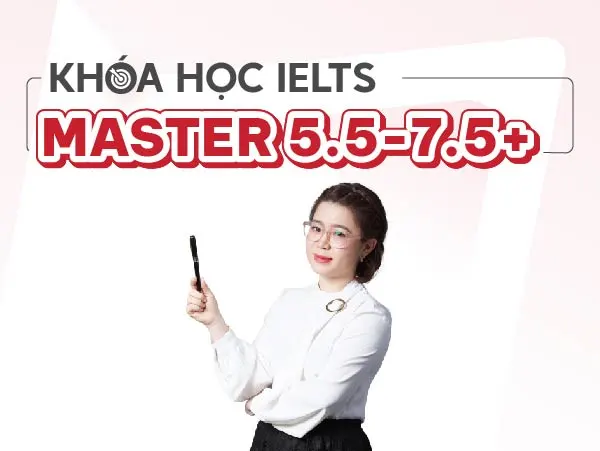
Đề bài
Some people think young people should be required to have full-time education until they are at least 18 years old. To what extent do you agree or disagree?
Phân tích đề
Dạng đề
Argumentative (Agree or disagree with an opinion)
Keywords
- young people
- full-time education
- at least 18 years old
Yêu cầu của đề
- Đề đưa ra ý kiến là người trẻ nên được yêu cầu hoàn thành chương trình giáo dục toàn thời gian cho đến khi ít nhất là họ 18 tuổi.
- Đề yêu cầu người viết bày tỏ quan điểm đồng ý hoặc không đồng ý với ý kiến trên
Brainstorm ideas
The importance of full-time education to adolescents:
- Academic foundations: Full-time education lays the groundwork for future academic pursuits and career opportunities. It provides students with a solid foundation in core subjects like math, science, language arts, and social studies.
- Skill development: Adolescents develop essential skills such as critical thinking, problem-solving, communication, and teamwork through full-time education. These skills are invaluable in both personal and professional life.
- A mandatory requirement to apply for most jobs: In many societies, employers require their employees to complete the mandatory schooling program before applying for the job position.
Some difficulties in mandating a full-time education to adolescents:
- Financial burden
- Different orientations: not all youngsters wish to complete full-time education courses, as some are eager to join vocational school
Dàn bài
Introduction
- Paraphrase the topic
- Briefly state the writer’s viewpoint (agree or disagree)
Body 1: The importance of full-time education to adolescents:
- Laying the foundation for higher academic pursuit: Full-time education lays the groundwork for future academic pursuits and career opportunities. It provides students with a solid foundation in core subjects like math, science, language arts, and social studies.
- Self-improvement: Adolescents develop essential skills such as critical thinking, problem-solving, communication, and teamwork through full-time education. These skills are invaluable in both personal and professional life.
- A mandatory requirement to apply for most jobs: In many societies, employers require their employees to complete the compulsory schooling program before applying for the job position.
Body 2: Difficulties in mandating a full-time education to adolescents
- Financial strains: In many countries where compulsory education is not fully subsidized by the government, many families still find it difficult to cover their children’s tuition fees.
- Different orientations: Not all youngsters wish to complete full-time education courses, as some are eager to join vocational school
Conclusion
- Summarize the presented arguments
- Re-state the writer’s viewpoint on the problem
Sample
The debate over whether young people should be required to pursue full-time education until the age of 18 has been a topic of discussion for many years. While some argue that this requirement is essential for personal and societal development, I would contend that compulsory education is yet to be suitable for every youngster, as there are indeed hindrances for pupils.
To begin with, full-time education plays a pivotal role in the development and future success of adolescents. It provides a strong foundation for higher academic pursuits by equipping students with a solid grasp of core subjects like math, science, language arts, and social studies. This knowledge base is essential for further education and career opportunities. Moreover, full-time education fosters essential skills such as critical thinking, problem-solving, communication, and teamwork, which are invaluable in both personal and professional life. In many societies such as in Vietnam, completing a full-time education program is often a mandatory requirement for applying to most jobs. This demonstrates the recognition of the importance of formal education in preparing individuals for the workforce.
Having said that, there are also justifications to contend that not every youngster is suitable for a compulsory full-time education program. One significant challenge is the financial strain. In many countries where compulsory education is not fully subsidized by the government, parents often bear the burden of tuition fees, textbooks, and other educational expenses. This can be particularly difficult for low-income families, who may struggle to afford the exorbitant costs associated with keeping their children in school. Additionally, not all adolescents have the same educational aspirations. While some may thrive in a traditional academic setting, others may be more inclined towards vocational training or apprenticeship programs. Mandating full-time education could limit their options and hinder their ability to pursue their chosen paths.
In conclusion, despite valid arguments for extending mandatory education beyond the age of 18, I believe that a more flexible approach is ultimately beneficial. While full-time education provides a valuable foundation for many young people, it is essential to recognize that individual circumstances and learning styles vary greatly. Moreover, there are also challenges relating to finances that may severely disrupt a young person’s ability to continue their education.
Wordcount: 367 words
Vocab
| Vocab | Nghĩa tiếng Việt |
| compulsory education /kəmˈpʌlsᵊri ˌɛʤʊˈkeɪʃᵊn/ (n) | giáo dục bắt buộc |
| higher academic pursuits /ˈhaɪər ˌækəˈdɛmɪk pəˈsjuːts/ (n) | theo đuổi trình độ học thuật cao hơn |
| solid grasp /ˈsɒlɪd ɡrɑːsp/ (n) | hiểu rõ, nắm vững |
| educational aspirations /ˌɛʤʊˈkeɪʃᵊnᵊl ˌæspɪˈreɪʃᵊnz/ (n) | khát vọng học tập |
| traditional academic setting /trəˈdɪʃᵊnᵊl ˌækəˈdɛmɪk ˈsɛtɪŋ/ (n) | môi trường học tập truyền thống |
| apprenticeship programs /əˈprɛntɪsʃɪp ˈprəʊɡræmz/ (n) | chương trình thực tập |
Dịch bài
Cuộc tranh luận về việc liệu thanh thiếu niên có nên được yêu cầu theo học toàn thời gian đến tuổi 18 đã là một chủ đề thảo luận trong nhiều năm. Trong khi một số người cho rằng yêu cầu này là cần thiết cho sự phát triển cá nhân và xã hội, tôi cho rằng giáo dục bắt buộc chưa phù hợp với mọi trẻ em, vì thực sự có những trở ngại cho học sinh.
Để bắt đầu, giáo dục toàn thời gian đóng một vai trò quan trọng trong sự phát triển và thành công tương lai của thanh thiếu niên. Nó cung cấp nền tảng vững chắc cho việc theo đuổi học vấn cao hơn bằng cách trang bị cho học sinh khả năng nắm vững các môn học cốt lõi như toán, khoa học, ngôn ngữ nghệ thuật và nghiên cứu xã hội. Cơ sở kiến thức này là cần thiết cho giáo dục và cơ hội nghề nghiệp tiếp theo. Hơn nữa, giáo dục toàn thời gian nuôi dưỡng các kỹ năng thiết yếu như tư duy phản biện, giải quyết vấn đề, giao tiếp và làm việc nhóm, vốn vô giá trong cả cuộc sống cá nhân và chuyên nghiệp. Ở nhiều xã hội như ở Việt Nam, hoàn thành chương trình giáo dục toàn thời gian thường là yêu cầu bắt buộc để xin việc. Điều này chứng tỏ sự công nhận tầm quan trọng của giáo dục chính quy trong việc chuẩn bị cho cá nhân tham gia lực lượng lao động.
Tuy nhiên, cũng có những lý do để cho rằng không phải trẻ em nào cũng phù hợp với chương trình giáo dục toàn thời gian bắt buộc. Một thách thức đáng kể là gánh nặng tài chính. Ở nhiều quốc gia mà giáo dục bắt buộc không được chính phủ trợ cấp đầy đủ, cha mẹ thường phải gánh vác chi phí học phí, sách giáo khoa và các chi phí giáo dục khác. Điều này có thể đặc biệt khó khăn đối với các gia đình có thu nhập thấp, những người có thể gặp khó khăn trong việc chi trả cho chi phí cao ngất ngưởng liên quan đến việc giữ con ở trường. Ngoài ra, không phải tất cả thanh thiếu niên đều có cùng những khát vọng học tập. Trong khi một số người có thể phát triển mạnh trong môi trường học thuật truyền thống, những người khác có thể nghiêng về đào tạo nghề nghiệp hoặc chương trình học việc. Yêu cầu giáo dục toàn thời gian có thể hạn chế các lựa chọn của họ và cản trở khả năng theo đuổi con đường đã chọn.
Kết luận, mặc dù có những lập luận hợp lý để kéo dài giáo dục bắt buộc vượt quá tuổi 18, tôi tin rằng một cách tiếp cận linh hoạt cuối cùng là có lợi. Trong khi giáo dục toàn thời gian cung cấp nền tảng giá trị cho nhiều trẻ em, điều quan trọng là phải thừa nhận rằng hoàn cảnh cá nhân và phong cách học tập rất khác nhau. Hơn nữa, cũng có những thách thức liên quan đến tài chính có thể làm gián đoạn nghiêm trọng khả năng tiếp tục học tập của một người trẻ tuổi.
Xem thêm














![[Cập nhật] Lịch thi TOEIC 2025 Quý 1 tại IIG Việt Nam](https://anhnguathena.vn/upload/ban-sao-cua-template-bai-viet-seo-6.png?v=1.0.0)





